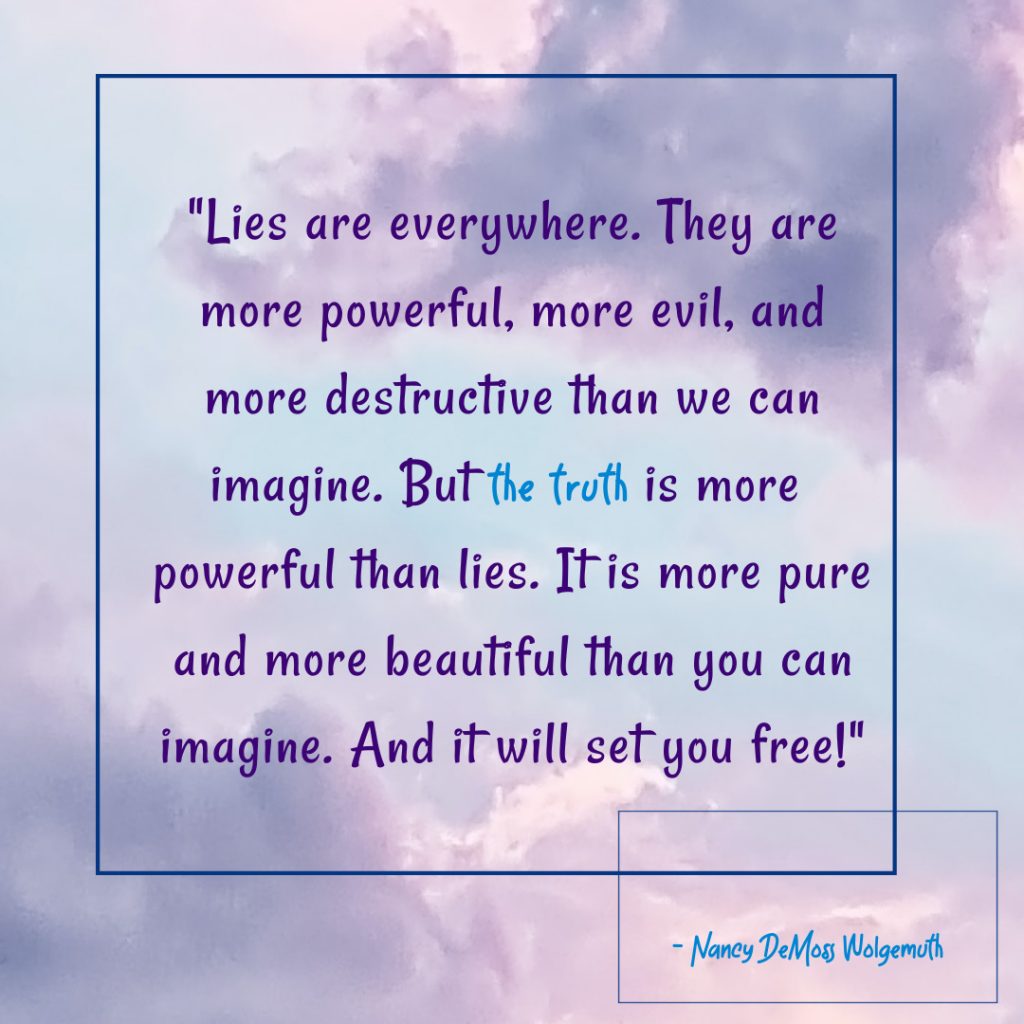When I was applying to colleges twenty years ago, one of my application essays (for a Christian school) asked me to express my views on the concept of absolute truth. It was the first time I’d heard this phrase “absolute truth,” but once I was clear on its meaning, I had no problem writing multiple pages attesting to its existence and identifying key reasons why the acknowledgement of this concept should be at the center of any curriculum, institution, or worldview.
Back then, I found it difficult to imagine a rational individual who would not affirm this notion. Yes, there are some things/ideas/beliefs that cannot be proven—many things, in fact. But there are also a handful of genuine, unequivocal realities that are fundamentally beyond dispute. At seventeen, I could acknowledge that we may disagree on which specific truths were irrefutable and which were open to interpretation . . . but I thought we all were in agreement that some truths were sacred, incontrovertible, and above speculation.
I’m almost certain that two decades ago, most of my fellow college applicants—and probably most of the American population—would have agreed with my analysis. But a lot has changed in twenty years. Ideologies are shifting at a whirlwind pace, and in that brief time span we have largely transitioned to a post-truth society, defined by Wikipedia as “the disappearance of shared objective standards for truth and the circuitous slippage between facts or alternative facts, knowledge, opinion, belief, and truth.”

This relativism has come to define our modern discourse in ways that would have been unfathomable to me (and likely most of us) a very short time ago. Today, there is a collective understanding that we each possess our own “Personal Truth.” Each of us is the author of “Our Truth,” and to deny this truth in ourselves (or worse, to acknowledge the inconsistencies of another person’s “Truth”) is an unforgivable sin that will get you canceled faster than a mask-less white male at a Covid-era BLM rally.
I’ve witnessed this trend from afar for years, and my confusion and concern has grown as it has gotten uncomfortably closer to home. Counselors, pastors, and thought leaders I once trusted have abandoned absolutes in favor of culturally relevant subjectivism. In some instances, these replacements have been valid and even necessary, but often it has gone too far. In relinquishing their hold on the Capital-T Truths, they’ve fallen for far too many half-truths, deceptions, and full-blown lies. . . and they’ve taken many of their followers with them.
The prevalence of deception is not new. It can be traced back to the Garden of Eden, when Satan’s lies to Adam and Eve led to the fall of humankind. We have been waging a battle for the truth ever since. Our current rejection of Absolute Truth is simply the latest manifestation of a millennia-long battle between lies and the Truth. But my awareness of this battle has been heightened, and I’ve spent much of the last couple of years sorting fact from fiction, truth from deception, ambiguity from absolute.
I am not alone in this truth-seeking mission, as is evidenced by a recent proliferation of books, sermons, articles, and conversations zeroing in on this subject. I was excited when my Women’s Bible Study this semester announced our relevant theme would be, “Your Truth, and Other Lies We Believe.” I’ve inhaled every week’s teaching and am thankful to be exploring these challenging ideas alongside a group of other Christian women.
In her introduction to the series, our Bible Study teacher stated that, “a half truth masquerading as a whole truth becomes a complete untruth.” It is easy to shift our trust from the Real Truths to these fake truths, creating space for doubt and further deception to creep in. This, of course, is Satan’s intention: he plants seeds of untruth and doubt, and these deceptive seeds quickly overtake the landscape of our hearts, souls, and minds if we do nothing to squelch their power. Whether we are aware of it or not, there is a battle for our lives taking place, and this battle is won by uprooting the enemy’s lies and replacing them with God’s truths.

This quest for truth is NOT EASY, but it is straightforward. We must:
- 1) Identify the lie (name it, see the falsehoods within it, understand it).
- 2) Investigate the lie (where did it come from, and why are we believing it?).
- 3) Replace the lie with Truth that comes to us through a study of Scripture, through community, through prayer, and through discernment from the Holy Spirit.
My Bible Study is taking us through some of the more prevalent lies we have come to believe: lies about God and ourselves, about our priorities and our emotions; about circumstances, relationships, and values and sin. These themes have led me to identify many of the deceptions I have unknowingly embraced, and I’ve begun the tedious but necessary process of uprooting these lies and replacing them with truth. Which leads me to this new series that I’m calling “The Truth Chronicles”. . . .
I’m walking out this truth-seeking mission in real time, and I want you to come along with me for the journey. With each post I will be identifying a mistruth I’ve come to believe and seeking out a truth I hope to welcome in its place. Some of these lie/truth combos will be very specific to me while others are likely deceptions many of you are grappling with too. Some of the lies and truth-replacements will be fundamental; others will be smaller but still consequential. . . because even half-truths are lies in need of being identified, understood, and replaced.
This series is not fully planned out; I might stick to this topic for just a few weeks, or it might become a series I return to again and again. The enemy of our souls is shrewd and conniving, so I have no doubt that as long as there is breath in my lungs and words pouring through my fingertips and onto the screen, there will always be mistruths I am working to confront and uproot.
My writing in this space plays a key role in my personal spiritual formation, and it is a big part of how I make sense of all that God is teaching me. I am grateful for the opportunity to share this part of my life with you, and I hope that my pursuit for the truth will inspire you to embark on a similar quest yourself. Let’s encourage and pray for one another as we seek God’s wisdom, discernment, and truth—not just “our truth” but His Truth that reigns sovereign over all.
Sounds like this series could be a book deal Kendra! I’m looking forward to reading your thoughts on the subject! I remember seeing the movie Snow Falling on Cedars with some Friends and they were gushing about the movie afterwards and I tried to bring up the idea that the movie suggests there is no absolute truth and that concerned me. They looked at me like I had 10 heads! 😂😂😂 one friend even joked that they couldn’t bring me to movies again because I was spoiling the movie for them with my concerns. I explained that discussing a movie is one of life’s greatest pleasures and that every content creator has a philosophy of life behind their work and it’s interesting to identify it! They were skeptical!
I cannot read a book or watch a movie without looking to the deeper themes (and discussing them). I can imagine I also would not be welcome to go to the movies with your friends!
I’m so glad you could identify the problem with the film and point it out. . . this absence of truth trend is so insidious and such a slippery slope. I think we need to challenge it wherever it shows up, even when it seems small or inconsequential.
Solidarity! 💯